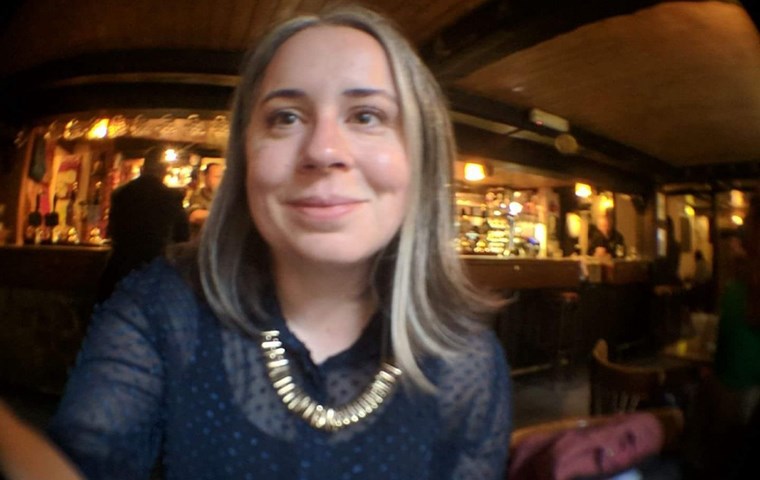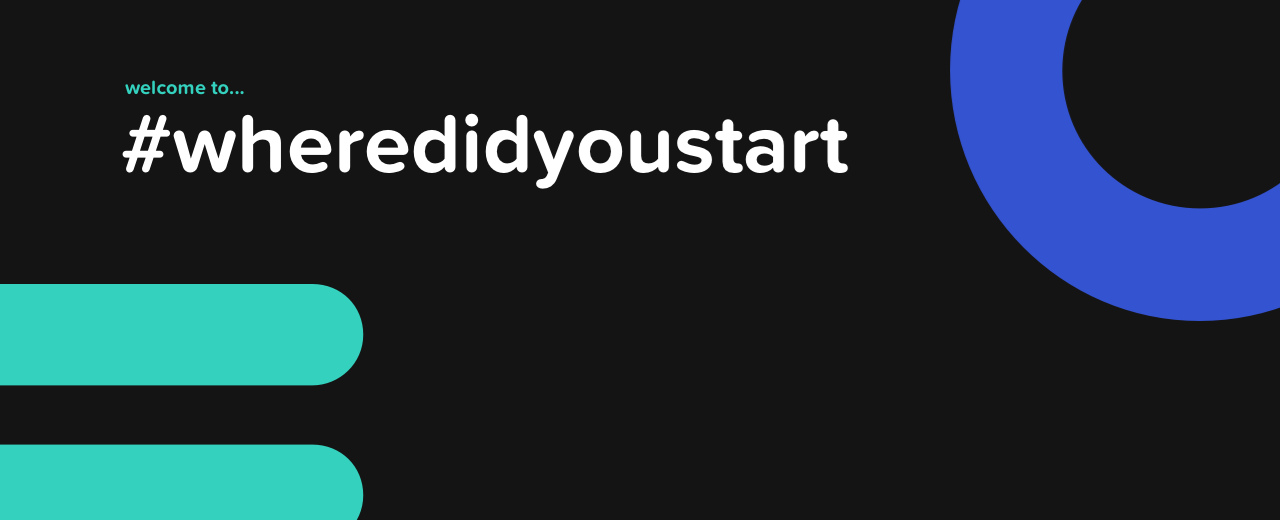Meet Caylin Smith. Now working for the British Library and Legal Deposit Libraries, Caylin’s pathway into her current job shows just how transferrable digital skillsets can be. And it’s fair to say that we’re a teeny bit jealous of the amazing experiences she’s had getting to where she is now! Over to you, Caylin.

It’s hard for me to pinpoint exactly how I got started in digital. Much of my time as a kid was spent in front of the computer playing games, writing, and surfing the web. But I didn’t imagine a career that involved building anything in a digital context. And I certainly never imagined working in a field where I help preserve digital objects. I didn’t even know what that term meant.
I didn’t plan my career path in advance. A lot of the things I have done happened because one opportunity led to another. I had a lot of amazing colleagues and people supporting me along the way, and I don’t think I could have planned this if I’d tried. I completed my undergrad in Montreal, Canada, studying English with a focus on Cultural Studies. I was interested mainly in film history and theory, but wanted to learn more about working hands-on with analogue film. I started volunteering at my university’s archives, which had a small collection of films, to gain some experience. I lucked out and had a really great mentor there, who encouraged me to pursue further education in film preservation.
It was through learning to preserve analogue film that I became aware of how digital technology can not only help preserve film content for future audiences, but also the possibilities it creates for access. This really connected with my interest in film history and other examples of how films could be shown besides in a cinema, and how digital technology and video help enable new ideas for presentation. I went on to intern within EYE Film Institute Netherlands’ Digital Presentation team, which is responsible for creating inventive onsite and online ways of exhibiting digitised and born-digital films from their collection, many of which encourage user interaction.
Since this role I’ve always been drawn to opportunities to work with digital content in a way that also focuses on making it accessible to users. As someone with a background in preservation, it’s really awesome to see how the work you do affects end users, and whether a user can access digital content also demonstrates that it’s been sufficiently preserved.
One past job that combined my interests in preservation and access was working for the Walker Art Center in the United States as the archivist for its film and video collection, as well as the project manager for an on-demand cinema space that showed born-digital and digitised content from this collection. I worked closely with the museum’s technologist, and it was really great collaborating with someone who was also interested in new ideas for providing access to the collection, but also brought more-technical skills to the project.
I think this is something that’s really great about working in digital: you come across people with such diverse skillsets who can help you to build your own. I learned a lot of things on the job, from colleagues, in professional development, and some skills were self-taught; I certainly didn’t stop learning when I finished school. I find digital skills to be highly transferrable between different fields, and it’s easy to find yourself applying something you learned in one context to a completely different situation.
Something that I would point out to anyone interested in working in a digital domain — just because you didn’t train for something specific doesn’t mean it’s off limits. You learn things every day and you can apply this knowledge in totally different contexts that you wouldn’t expect. The perspective you bring with you from all of your past experiences is really what makes you valuable to projects, not just your inherent skills.
I’m currently based at the British Library, and I started my career here as its Repository Manager, where I helped coordinate the long-term preservation of its digital collections. In my current role, I still work for the British Library, but also the rest of the Legal Deposit Libraries, and I manage projects that will deliver workflows for acquiring, cataloguing, preserving, and providing access to Non-Print Legal Deposit content. This applies to UK material published digitally and online, so it’s a lot!
Something that’s really helped me in my career is spending time learning what my colleagues are working on. I used to really stress about having conversations with colleagues and not knowing all the answers.
And if I could give advice to someone, I would say that even if you don’t know about something, don’t assume that everyone else does; it’s really important to ask questions and bring your own perspective to a discussion.
There are a lot of things in the digital realm that no one really knows how to deal with yet — or there are multiple ways of dealing with and there isn’t an overarching solution. We’re all figuring it out together.
I love that my work combines so many of my interests, and yet I still find myself learning something new every day. I’ve had people ask me what I think my next job will be, and I really don’t know — it might not even exist yet!

